Q and A with Shaun Creighton by Runner’s Tribe
Last month Shaun Creighton won the Perth Marathon in an outstanding time of 2:32.12, at 51 years of age. Shaun is still the current Australian 3,000m steeplechase record holder and is now looking to run a sub 2:30.00, in order to break the Australian 50+ marathon record. Age may have slowed Shaun down a bit, but his big engine is still there in apparent abundance.
PERSONAL BESTS
| DISCIPLINE | PERFORMANCE | WIND | PLACE | DATE | RECORDS |
|---|---|---|---|---|---|
| 1500 Metres | 3:38.59 | Luzern (SUI) | 29 JUN 1993 | ||
| One Mile | 3:59.46 | Cork (IRL) | 24 JUN 1995 | ||
| 2000 Metres | 5:03.00 | Sydney (AUS) | 25 JAN 1992 | ||
| 3000 Metres | 7:41.60 | Oslo (NOR) | 21 JUL 1995 | ||
| 5000 Metres | 13:17.76 | Lausanne (SUI) | 05 JUL 1995 | ||
| 10,000 Metres | 27:43.10 | Villeneuve d’Ascq (FRA) | 25 MAY 1996 | ||
| 2000 Metres Steeplechase | 5:30.7h | Canberra (AUS) | 12 DEC 1992 | ||
| 3000 Metres Steeplechase | 8:16.22 | Villeneuve d’Ascq (FRA) | 02 JUL 1993 | ||
| 10 Kilometres | 29:15 | Mobile, AL (USA) | 24 MAR 2001 | ||
| Half Marathon | 1:03:50 | Sydney (AUS) | 23 MAY 1999 | ||
| Marathon | 2:10:22 | Berlin (GER) | 28 SEP 1997 |
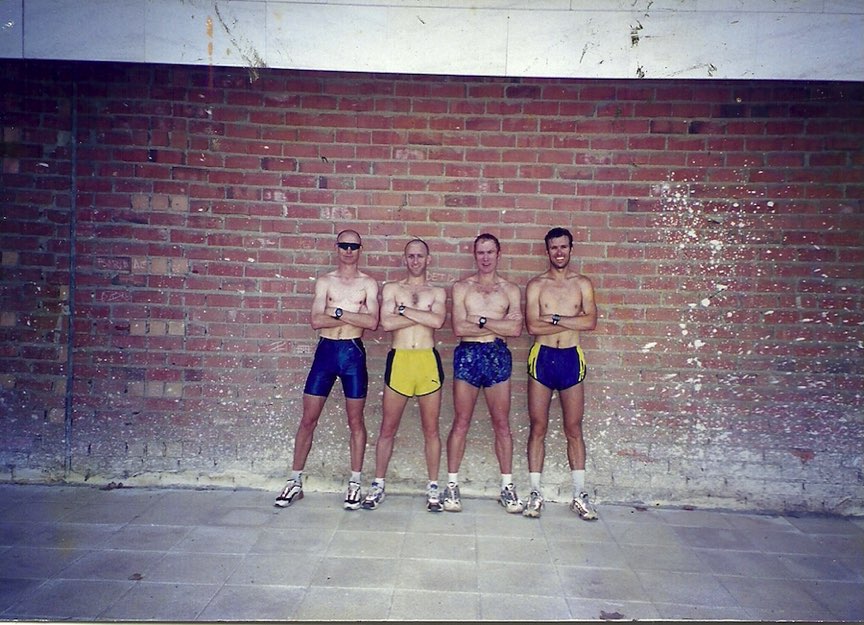
I’d like begin with few questions pertaining to the Perth Marathon…
Q: How happy were this win and time and was it at all surprising?
A: First and foremost I thoroughly enjoyed the race and the build-up for the race. The WA Marathon Club put on a great event. It’s always pleasing to win a marathon, as a lot can happen over 42km! That said, it’s easier to control what time you run, rather than where you come. You can’t control who will line up, but you can to a large extend control how you run. I felt I was in good enough shape to run sub 2:30.00. Based off previous results, I suspected that time would put me on the podium. So to answer your question, yes I was happy with the win and time, but it was consistent with my expectations.
What was the race plan and how did it play out?
If all went really well, my target time was just under 2:30.00, which would have also broken the Australian old man (over 50) marathon record of 2:30.52. There was a reasonably strong head wind from 17km to 29km, so at 17km I had to decide whether to push hard into the wind, or stay in the pack until 29km and make a move then. I decided that it wasn’t the day to try and front run a marathon, so I stayed in the pack until 29km. Race plans of course need to be adapted depending on conditions, how you are feeling, what other moves are made etc. The final 10km was my fastest of the race, but I couldn’t pick it up enough to get back to 2:30.00 pace, although I got close. I think that if you prepare well and then execute your race plan on the day, you need to be satisfied with the result, so I was very pleased with the result.
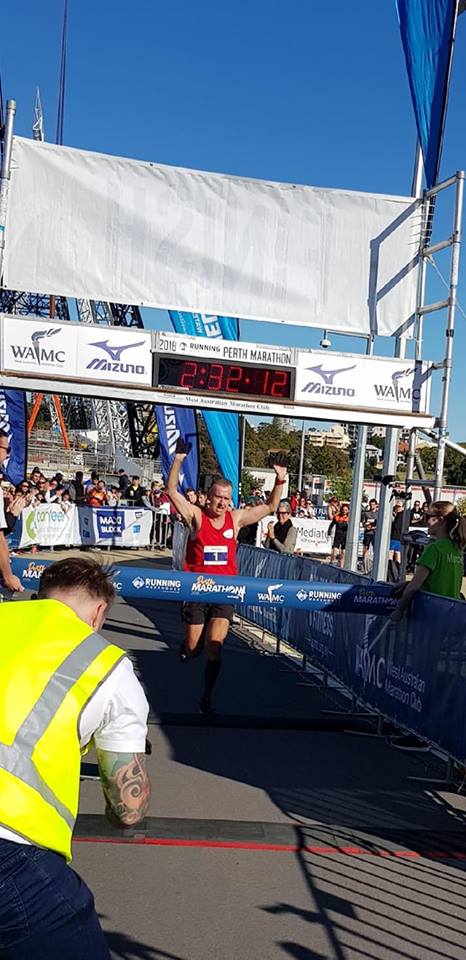
How many weeks were you able to log in uninjured before the race?
For the first time in my life, I have reached the second half of the year without missing a day of running. In fact, I’ve missed very few days running in the past 3 years, after having had a 10 year period of not running much. Consistency really is an important element if you are looking to improve. I’ve had plenty of niggles during the past 3 years, but have been able to manage them with regular treatment.
What did your taper look like?
I learnt over the years that a big taper doesn’t work for me. 7 days before the marathon, I just cut back to about 2/3 a normal week. That’s enough to freshen me up. My recovery runs are gentle at the best of times, but they are even slower in taper week.
Would you say over the years, you’ve mastered your in race nutritional intake?
My in race nutrition has always been pretty simple, being to drink about 200ml of half strength sports drink every 5km or so and have a gel in my pocket just in case I need it late in the race.
https://www.youtube.com/watch?v=sOTJztC-4RQ
(Video: 1993 World Stuttgart 3000m Steeplechase Men)
How did your body pull up post race and up to now?
I had sciatic pain for 4 weeks before the race, and it is still bothering me now. I was recovering well from Perth, but then set myself back again by jumping in a hard track session with Emily Brichacek (who I coach) when not fully recovered. I’m amazed how quickly some people recover from a hard marathon. Perth has reminded me that it takes me 4 to 6 weeks to properly recover from a marathon.
Can you please outline a typical training week leading into the Perth marathon?
Until 10 months ago, my training was very unstructured. For the past 3 years I’d been back doing some training. It consisted of a long run with my mate Daniel Green, a tempo run of 10 to 12km once a week, and plenty of easy hour runs.
Then 10 months ago I started coaching Emily Brichacek. I immediately started doing all the harder sessions with Em, so I needed to add some structure. Coaching Emily is what got me fitter, since I started doing 3 sessions per week, like I did 20 – 30 years ago, rather than just running around and doing a session when I felt like it. My typical training week is a scaled back version of what I was doing 20 years ago, except Sunday long runs take longer.
Here’s a reasonably typical week for me leading into the Perth Marathon:
- Monday: An easy hour.
- Tuesday: Slightly faster medium length reps eg 8 x 2 min with 1 min rest or a 15 min tempo followed by some hill reps.
- Wednesday: An easy hour.
- Thursday: Mona Fartlek or 4 x 5 min.
- Friday: An easy hour.
- Saturday: Longer tempo eg 3 x 8 min at 3.30 per km (2 min jog rest) or longer tempo of eg 40 min at marathon race effort.
- Sunday: 3 hours relatively easy (often over hills).
Total km approximately 120km.
As with how I trained 20 years ago, the aim is to get through regular solid weeks where there is a mix of some hard running, some easy running, some long running, but no “super sessions”. For marathons, I love the quote from US marathon coach Bill Squires that “It’s the long run that puts the tiger into the cat.” It is the long run that has been the consistent staple of my running since getting back into some training 3 or 4 years ago.
Are you doing a 1km repeat session and if so, what are your splits looking like these days?
Yes, I do 1km reps often enough. The splits depend on time of year, number of reps and surface. A typical example would be 6 x 1km on trails with 90 sec rest with an average of 3.15. If in marathon training, it might be 8 reps on trails in 3.20s. If preparing for shorter races, it might be 6 reps on the trails in 3.10 with 2 min recovery. If doing km reps on track over summer, they’d be more like 3.05s.
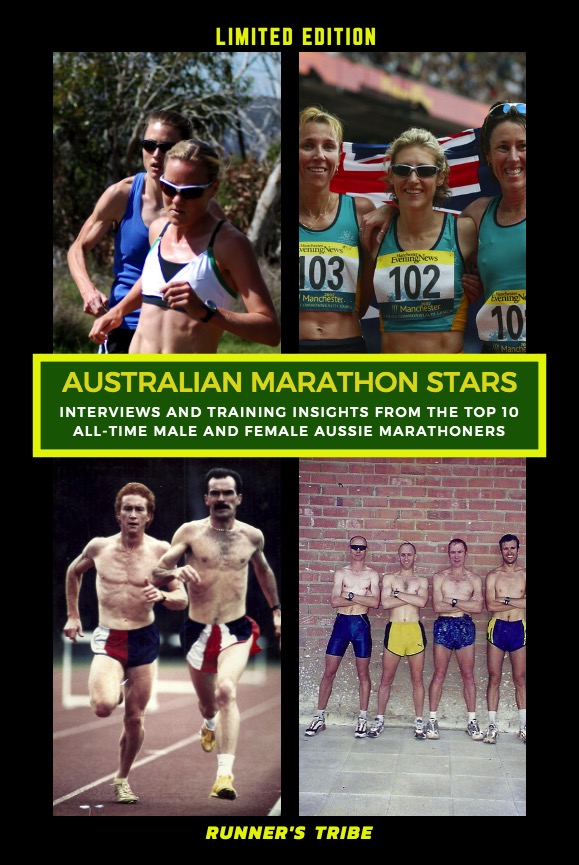
What’s the fastest session you do relating to building speed?
I had my first track season in 15 years this past summer, and really enjoyed it. Emily and I would do sessions like 8 x 400m in 68-70 seconds. I wouldn’t do sessions like that during a marathon preparation though. The fastest sessions I’d do in a marathon preparation are eg 8 x 2 min at 3.15 / 3.20 per km pace. Running a marathon is of course a matter of doing sufficient aerobic / threshold training that you can hold a strong pace for 42km, but you need to do just enough speed work so that race pace isn’t too close to the “red line”.
As you get older, what parts of your body have tended to break down more than most and how how have you countered this?
For a few years when I started back running I suffered from “old man calves”. I was also 20kg heavier than my old racing weight, which wouldn’t have helped. When I lost some weight and started wearing full calf compression socks my calf problems disappeared. I still have some hip problems from my old steeplechase days, and keep these under control with weekly treatment. I do a pilates session once per week and get two soft tissue treatments per week, and that seems to keep the injuries under control.
What’s the next race on the cards?
I’m keen to run another marathon this year and try to break 2:30.00. I recently found out that the Toronto Marathon incorporates the World Masters Marathon Championship this year in October, so I’ve just booked my flights. I’m excited to have a “race within a race” at Toronto. It will be my first overseas marathon since 2003.
Are there any current male Aussie distance runners you rate at a chance of a sub 2:10.00 in the near future?
Yes, there are several. I think that Stewart McSweyn, Collis Birmingham and Brett Robinson are all a good chance to break 2:10.00 in the near future. These guys jump out because they are fast enough that going through in 64 should be easy enough and they seem to handle the mileage. There’s no reason they can’t break 2:10.00. It will be interesting to see how Patrick Tiernan, Jack Rayner and Jordan Gusman develop in the next few years too, as they have good speed and are showing good promise at longer distances. Collis probably needs to do it soon, since he’s a bit older, but the other guys are all running very well and have plenty of time, so it will be interesting to track their progress.
In your opinion why has there been a drop off in male Aussie marathoning regarding times over the last two decade and a bit? Obviously Shelley has done amazing things, but it has been some time since we’ve seen an Australian go sub 2:10.00.
We’ve seen the Australian women’s all-time marathon list re-written in the past few years, and I anticipate the Australian men’s all-time marathon list will see some movement soon, including a few under 2:10.00. I think a key to breaking 2:10.00, is not being too far away from your speed while getting through several back to back months of high volume (eg regularly running 200km per week). The guys mentioned above certainly are quick enough at shorter distances, and seem to be able to handle 200km weeks, so I’m optimistic how they’ll go in the marathon.
And final question; What is your secret to longevity in running?
The secret to longevity is the same as the secret to consistency. Get through the work, but look after yourself by training smart, not smashing yourself, get adequate recovery, and get regular treatment whether you’re injured or not. Finally, if you don’t enjoy your running, it’s unlikely you’ll do it for long to maximise your potential…so make sure you enjoy your running!


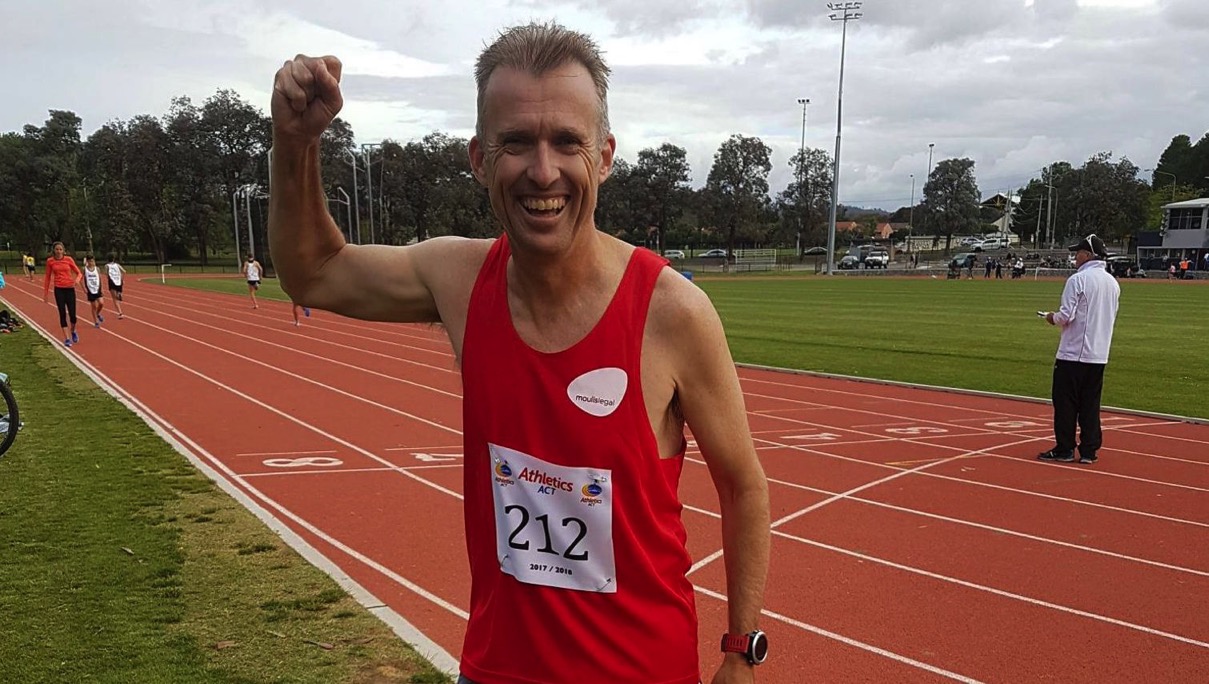


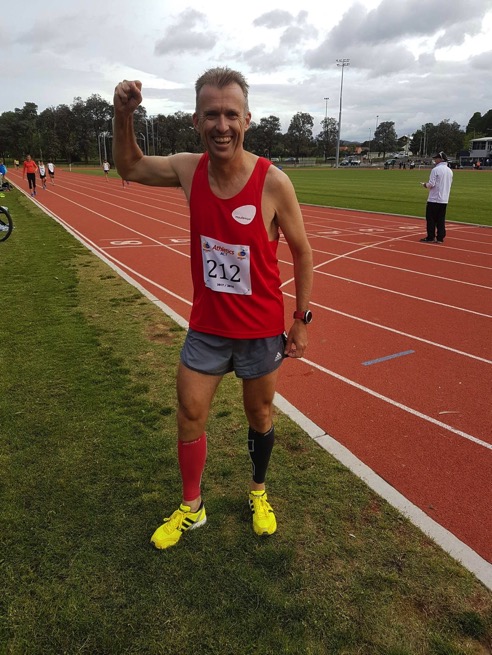
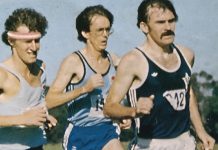












You may want to correct Shaun’s 10 km track PB as it is 27.31 from the 1996 Zatopek when he broke Ron Clarkes long standing record